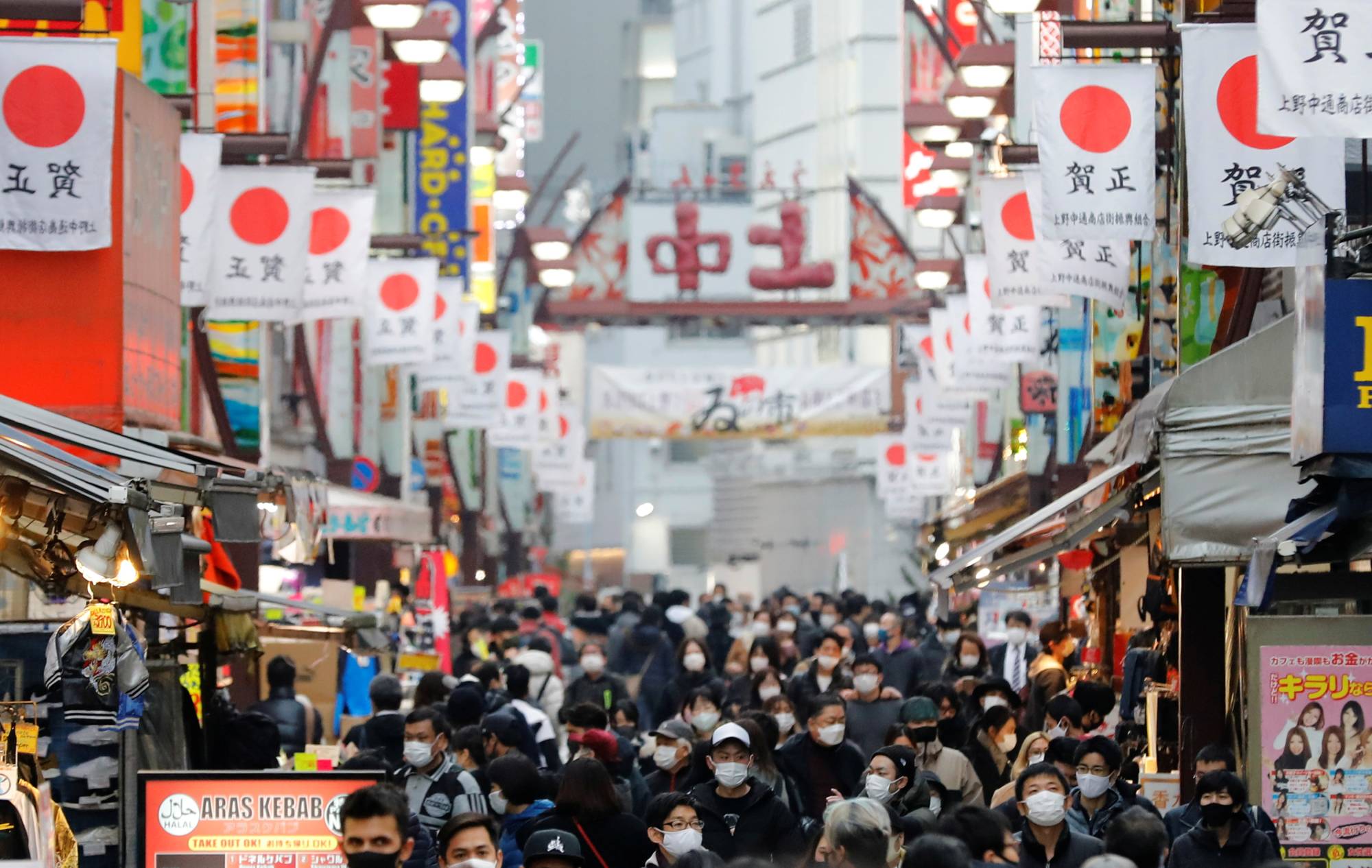If 2020 will go down in history as the year of COVID-19, then 2021 will be remembered — it is hoped — as the Great Recovery. Yet even as the world envisions life after the pandemic, events of the last year have been revealing and disturbing. The COVID-19 outbreak has been a mirror for society, sadly exposing more blemishes and failures than heroism and compassion. Pervasive is lassitude, or perhaps more accurately a fatigue with the vigilance and discipline required to contain and defeat the disease. That is understandable — a year of self-control is exhausting. But it also reveals a seeming indifference to the fate of others, especially the weakest and most vulnerable in society. We are better than this.
Japan’s first case of COVID-19 was reported Jan. 16. The number of confirmed cases has risen steadily, but not nearly as sharply as in other countries. As of Wednesday, the nation had recorded 226,596 incidents of COVID-19 infection — 42nd in the world — with that toll growing to 3,852 cases daily, 189,000 people have recovered and there have been 3,349 deaths. The toll is rising, but it remains well below other countries.
Fortunately, this country’s health care system is one of the best in the world; a persistent indicator is that Japanese citizens enjoy one of the world’s longest life expectancies. Still, there are worrying signs. There is a lack of health care professionals and doctors, a relatively low number of beds per 1,000 inhabitants, and a small percentage of those are reserved for infectious diseases.



